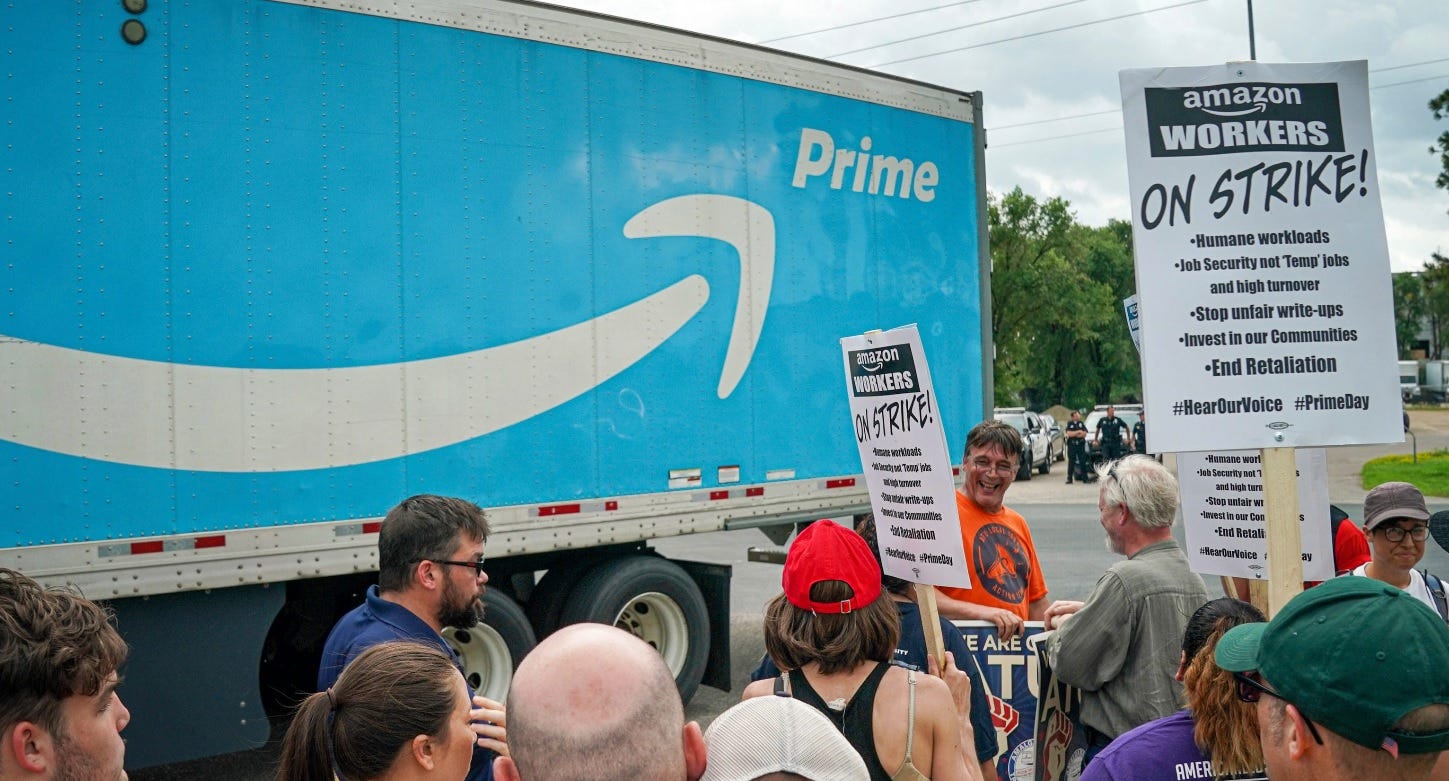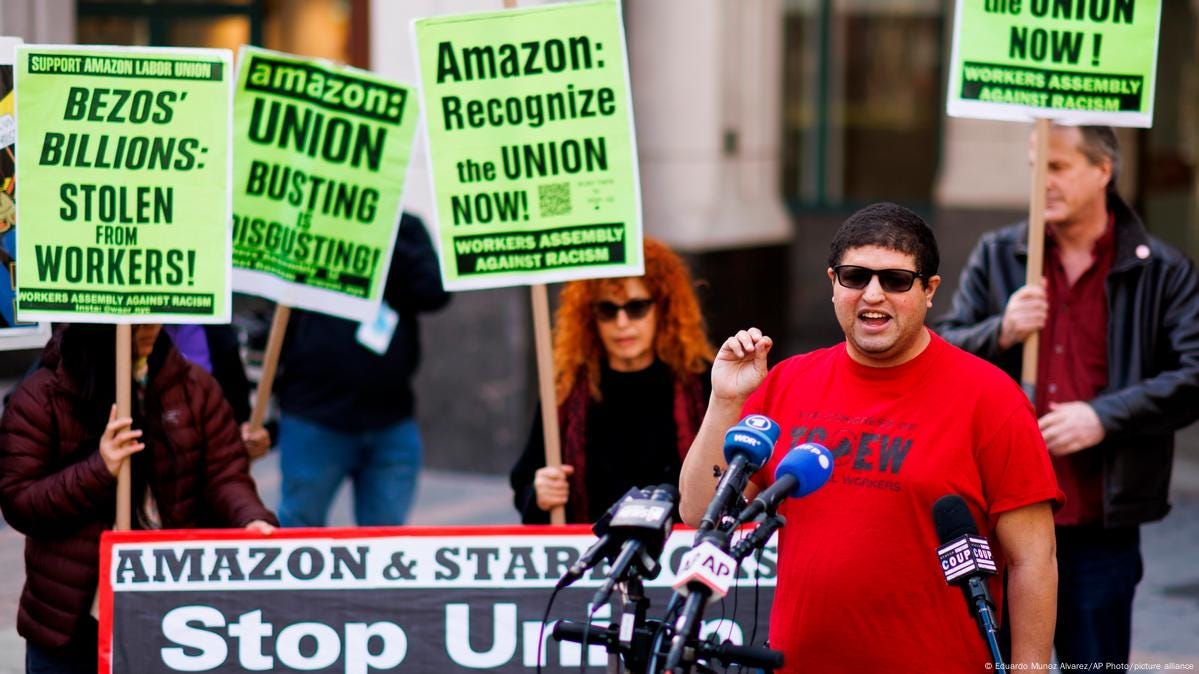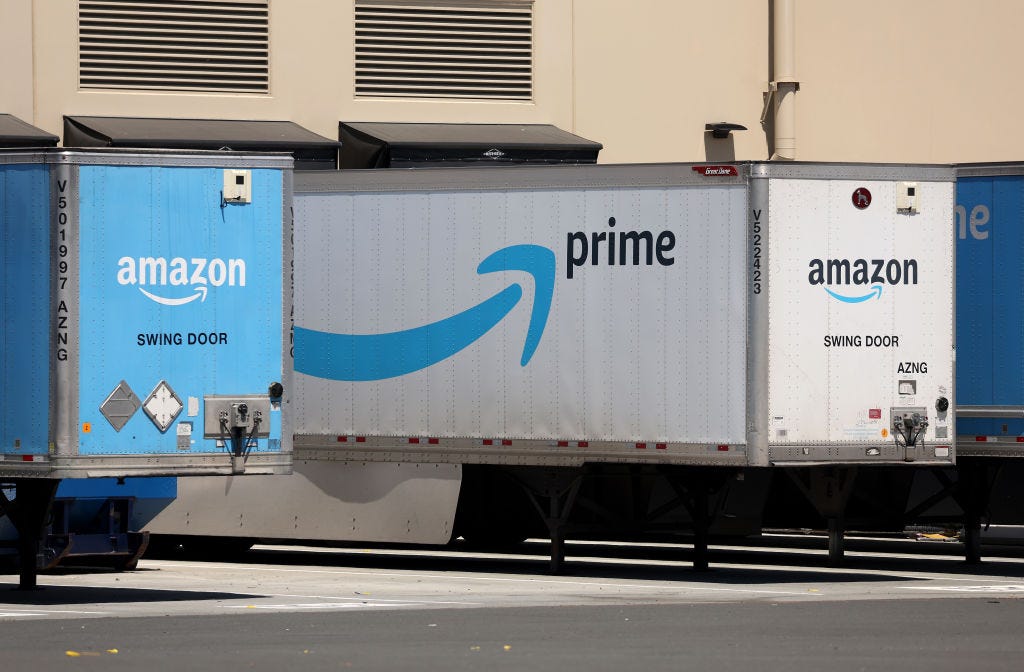Amazon Mobilizes Aggressive Anti-Union Push Ahead of Key Workers' Vote
As employees push for unionization, Amazon deploys extensive tactics to dissuade organizing efforts, raising concerns over corporate influence.
Four thousand workers at Amazon’s RDU1 warehouse in North Carolina are casting their votes from February 10 to 15 on whether to unionize with Carolina Amazonians United for Solidarity & Empowerment (CAUSE). If successful, RDU1, located in Garner outside Raleigh, would become only the second unionized Amazon warehouse in the United States.
This is a bold effort, taking place in an environment where labor organizing faces major challenges. North Carolina has the lowest union density in the country, at just 2.4 percent. Additionally, the fear of retaliation—a hallmark of Amazon’s anti-union stance—looms large. In January, Amazon abruptly outsourced its entire Quebec operation rather than recognize a union contract at one warehouse.
In North Carolina, the company has terminated several outspoken union supporters, including CAUSE president Rev. Ryan Brown.
On January 7, the National Labor Relations Board ruled that workers at RDU1 had collected enough union authorization cards to trigger an election. Within days, Amazon launched an aggressive campaign against unionization.
“They immediately mobilized against us,” said Marcela Duron, a stower at the warehouse. “They started holding meetings, distributing pamphlets—everything aimed at discouraging workers from supporting CAUSE.” (Duron requested a pseudonym for fear of retaliation.)
Anti-union posters appeared throughout the facility, including in restrooms. New personnel showed up on the warehouse floor, asking workers about their views on unionization. Employees received anti-union mailers at home, directing them to a company-sponsored website urging a “no” vote.
“If you talk about the union on the floor, they’ll be watching you,” said Italo Medelius-Marsano, a worker since 2022. “Amazon has identified key union leaders and deployed counter-organizers who work like union organizers—just on the other side.”
Amazon’s opposition has extended beyond internal efforts. On the eve of the vote, Garner police arrested an Amazon Labor Union leader from New York who had traveled to support the campaign. In December, authorities arrested two community members and a former Amazon worker for distributing pro-union flyers at the warehouse entrance.
“Under the National Labor Relations Act, I should have been allowed to hand out flyers on-site,” said Orin Starn, who worked at Amazon for six months. “But the police, who in Garner act almost like Amazon’s private security, just took us to jail.”
The two-million-square-foot facility stands on the site of a former ConAgra Foods plant, which closed in 2009 after a deadly explosion. After remaining vacant for years, Amazon opened the warehouse in 2020, making it one of the county’s largest employers—a fact workers are acutely aware of.
“Many workers, particularly refugees, fear drawing attention to themselves,” Duron said. Others worry about losing their jobs or hours, despite the tough working conditions. “Amazon takes advantage of this fear.”
Workers also allege that Amazon is sowing racial division to weaken union support. “The company has focused on persuading Latino workers,” said Medelius-Marsano. “They’re spreading the idea that the union is ‘only for Black workers’ and that ‘Hispanics are the hardest workers, while the union wants to protect lazy employees.’”
Amazon denies these claims. However, the company recently alleged that the union had told workers they could face deportation if they voted “no”—a statement Medelius-Marsano called “a complete and utter fabrication.”
To counteract division, CAUSE has embraced a multilingual approach to organizing. Their newsletters, initially in English, are now also published in Spanish, French, and Arabic. A Latino organizing committee helped expand outreach, bringing in dozens of Spanish-speaking leaders within months.
“A major challenge has been the language barrier,” said Pedroza, another warehouse worker who requested a pseudonym. “Training materials are often only in English, and HR doesn’t always have Spanish-speaking staff available.”
Many workers feel dehumanized by Amazon’s corporate structure. “You’re a veteran here if you make it six months,” Medelius-Marsano said. “I worked in packing for over a year, and my manager never even learned my name—I was just a badge number.”
Duron added, “Amazon is one of the wealthiest companies on the planet. It has the resources to improve working conditions. But right now, people are so exhausted that they attend anti-union meetings just to get an hour’s break from work.”
As the votes are cast, RDU1 workers must decide whether to stand up to Amazon’s powerful anti-union campaign. Their choice could have significant ripple effects—not just in North Carolina but across the nation’s growing movement for labor rights.







